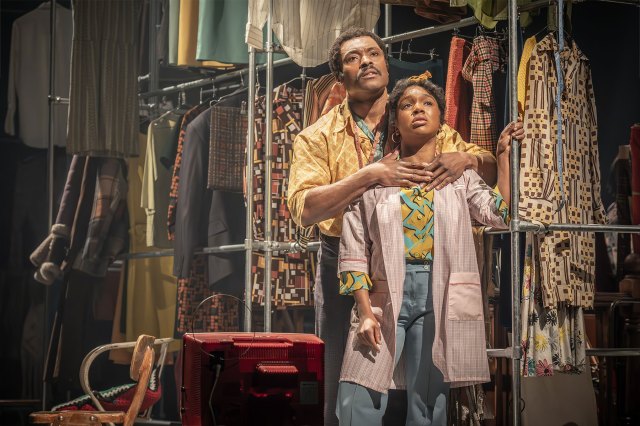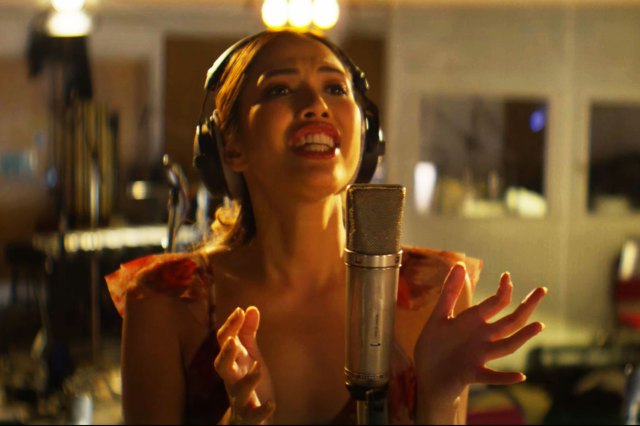Alterations at the National Theatre – review
Lynette Linton’s revival runs at the Lyttelton Theatre until 5 April

There are plays that deserve a revival because they are classics; and there are plays that are worth watching again because of the light they shed on the past – and how it affects the present.
Alterations by Michael Abbensetts, first seen in 1978, falls very much into the second category. This story of a Guyanese tailor determined to secure his own Carnaby Street store is a sensitive and revealing portrait of the Windrush Generation as they forge a new life in Britain.
Directed by Lynette Linton with the most delicate sense of balance, it emerges as warm, wistful and as full of richly coloured threads as the clothes that hang on rails above Frankie Bradshaw’s crowded set, rising and falling like waves as Walter (Arinzé Kene) dreams of his glorious future.
To match his ambition to his circumstances, he’s taken on the Herculean task of shortening bags full of trousers for the Jewish businessman Mr Nat (Colin Mace); the cheque he will receive for his labours, will cover the downpayment on his shop.
Once the great hope of Black British playwriting, Abbensetts was the author of the groundbreaking (and memorable) Empire Road, a TV drama series with an almost entirely Black cast and crew. His work, once so significant, has been ignored for years and this is the largest staging of Alterations ever.
Linton has burnished it with additional material by Trish Cook (particularly to expand the role of Walker’s neglected wife) and a wonderfully evocative staging that conjures (with the help of Oliver Fenwick’s smoky, golden light and Xana’s score) both Walker’s memories of his homeland and his vision of success. As trousers pile up on the work benches, and rum and coffee are drunk in turn, you really do feel you are in a workplace with these characters.

Kene’s charismatic performance as a man who has a strong sense of destiny and a determination to live life on his own terms, to find the financial success that is eluding his compatriots, is contrasted with the gentle Buster, his admiring sort-of-partner who takes on the heavy lifting on the sewing front with genial gentility. As played by Gershwyn Eustache Jnr, he’s a peacemaker where Walker is confrontational; his joyful confusion when he learns that his wife has finally given birth is a comic highlight.
Both are different from the young apprentice Courtney (Raphel Famotibe, wonderful), disaffected and alienated, fighting for his life on a rough estate. “When you make it, you make it for you,” he says to Walter, who assures him all will be well if the alterations shop succeeds in transforming itself into a tailoring business. “I want my own future.”
The sole female voice is Darlene, Walker’s wife, given force and feeling by Cherrelle Skeete, whose relationship with the anarchic Horace (Karl Collins) triggers the play’s most dramatic moments – and Walker’s sense that there is always a hidden price to pay for everything.
Like Roy Williams’ recent adaptation of Sam Selwyn’s Lonely Londoners, this is a piece very much rooted in its time. Thirty years on from the first wave of arrivals, these are men who are still surviving in a land that does not seem to want them, sustained by camaraderie and music, but still not absolutely at home.
The play has a subtle sadness to it, a sense of hopes betrayed but also achieved. It’s a fascinating addition to the repertory, one that points the way to the future, but also offers a vivid portrait of its own time.
















